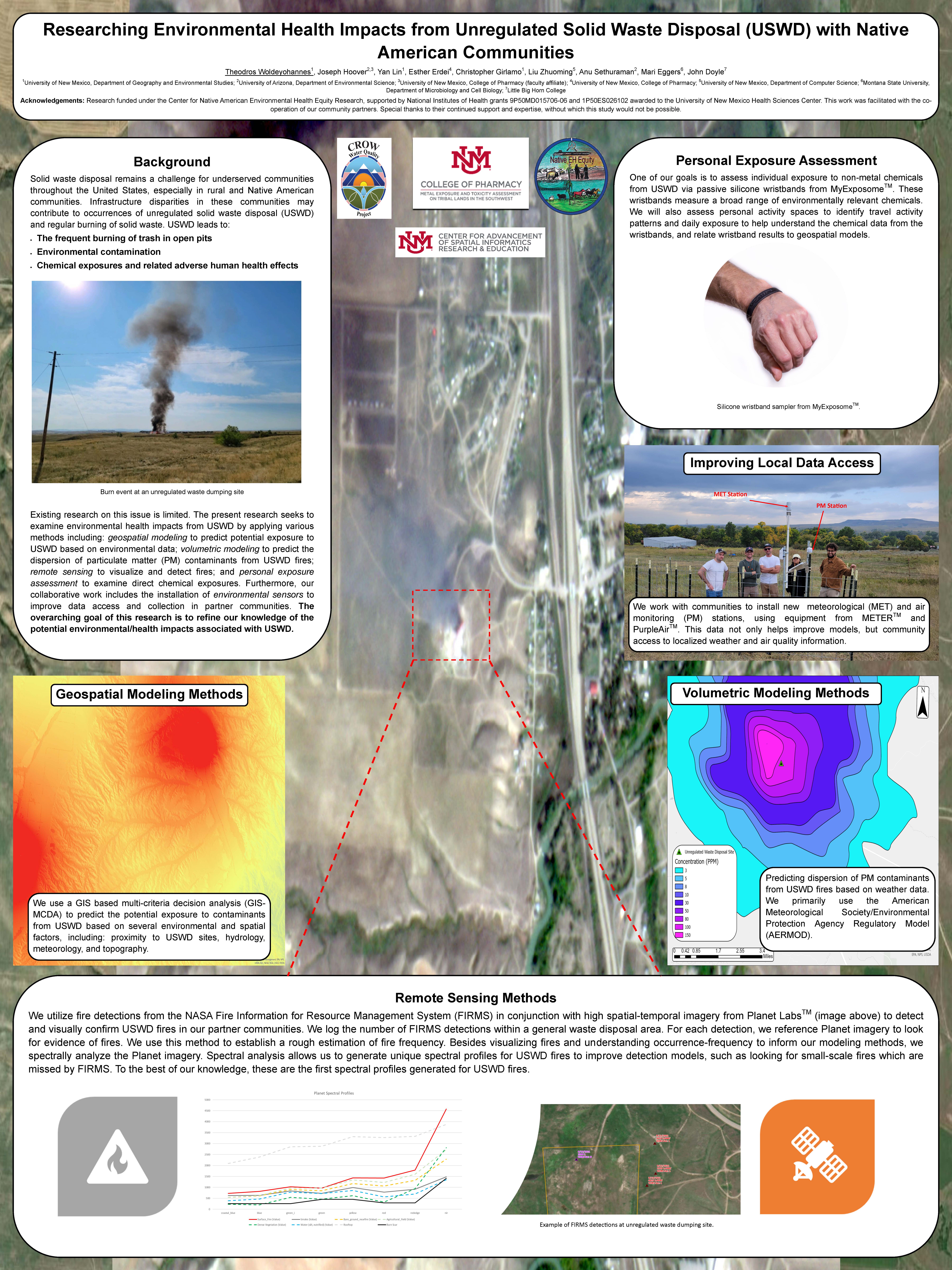Researching Environmental Health Impacts from USWD with Native American Communities
- Student Research -
- ASPIRE Faculty Advisor:
- Students:
- Theodros Woldeyohannes

Description:
Solid waste disposal remains a challenge for underserved communities throughout the United States, especially in rural and Native American communities. Infrastructure disparities in these communities may contribute to occurrences of unregulated solid waste disposal (USWD) and regular burning of solid waste. USWD leads to:
- The frequent burning of trash in open pits
- Environmental contamination
- Chemical exposures and related adverse human health effects
Burn event at an unregulated waste dumping site
Existing research on this issue is limited. The present research seeks to examine environmental health impacts from USWD by applying various methods including: geospatial modeling to predict potential exposure to USWD based on environmental data; volumetric modeling to predict the dispersion of particulate matter (PM) contaminants from USWD fires; remote sensing to visualize and detect fires; and personal exposure assessment to examine direct chemical exposures.
Furthermore, our collaborative work includes the installation of environmental sensors to improve data access and collection in partner communities. The overarching goal of this research is to refine our knowledge of the potential environmental/health impacts associated with USWD.
